
The Hustle
In the heart of San Francisco, where I've made a temporary home, I noticed a pulse that seems to run on, what I've come to joke with friends, a new energy source. It's the self-sustaining '3H' cycle: Hustling, Healing, Hallucinating. One begets the other in a sequence as rhythmic as it is persistent. We hustle passionately, to a point where we seek healing in methods as ancient as they are avant-garde, before hallucinating (literally a by-product of healing too) with our AI co-pilot on the next big thing. Rinse and repeat. It’s a testament to the ambition of the audacious, each spin of the cycle greased by the sweat and blood of optimistic builders and daring opportunists.
If you are, like me, a tech worker with an artistic soul, an immigrant navigating the ever-shifting sands of socioeconomic statuses, a spiritual nomad perpetually in the process of recalibrating an identity that sprawls across diverse subcultures, an advocate of irrationality in a bastion of logic, then you might recognize this dissonance. It's the glitching sensation of observing the wheel of your fate as it bumps across parallel tracks each operating on a different speed that seldom converge: the personal, the professional, the aesthetic and the existential. San Francisco, for all its contradictions, is a city where such extremes are not just visible but almost theatrically displayed. Perhaps that is what sustains my complex kinship with it — a shared blend of alienation and affinity, as I navigate the landscape as an engaged onlooker.
San Francisco, for all its contradictions, is a city where such extremes are not just visible but almost theatrically displayed. Perhaps that is what sustains my complex kinship with it — a shared blend of alienation and affinity, as I navigate the landscape as an engaged onlooker.
The stark silhouettes of homelessness cast against the sleek automation of self-driving cars that glide through downtown streets like specters from some future midnight; the frenetic pace of young startup founders, oblivious to the irony of their lost Tesla plate possibly lying amidst the curbside assortments peddled by idle sellers they narrowly avoid on the streets of Mission. These juxtapositions might be dismissed as a mockery of the city's liberal hypocrisy, but they also speak to a resilience, a dynamic adaptability that encapsulates the full spectrum of human experience.
In the day and night hustles, where even the act of vipassana meditation becomes a strategic play in the game of productivity-boost-as-a-service, there's a marvelous grandeur to this relentless acceleration. It is fueled by an awe-inspiring belief in the potential of human intellect, all echoing with the digital clamor of a species biohacking its limits in overdrive.
Yet, in this whirlwind of acceleration, I found myself yearning for a pause, a moment of stillness. It was in the most unlikely of encounters, noticing a small experimental Japanese theater named Theater of Yugen on the map, that I discovered this sanctuary. Here, amidst the ceaseless spin of San Francisco, I found a space where time seemed to stand still.
First impressions of Yugen
Nestled between Tartine manufactory and a motley of studios in Mission, Theater of Yugen seems almost out of place with its quiet dignity. Its entrance, marked by heavy wooden gates adorned with a floral crest, seems less an invitation than a shield against the urban cacophony. Crossing this threshold, I stepped into a realm where history lingers in the air — a koto resting silently here, posters of decades-old performances there. The stage itself is an island of dimly lit calm, its wooden expanse stretching out like a tranquil sea.
Something about Yugen's mission struck a chord with me. It's a space dedicated to breathing new life into Noh and Kyogen (known collectively as Nohgaku), ancient Japanese theater incorporating lyrical drama and slapstick comedy. In its pursuit to meld these time-honored art forms with Western narratives, Yugen crafts a bridge spanning centuries and cultures.
This fusion mirrored my own journey. Having drifted from city to city, country to country in the last decade or so, I've been perpetually adapting — to new jobs, new adventures, new technologies, new relationships, new rules and orders. Yet, within me, there's always been a backward glance, a yearning to thread the elusive past, what I cannot afford to lose to keep myself in its entirety, into the evolving fabric of my present. Yugen, in its blend of nostalgia and innovation, inhabits that longing of mine, that bridge between what was and what could be.
Yet, within me, there's always been a backward glance, a yearning to thread the elusive past, what I cannot afford to lose in order to be me, into the evolving fabric of my present. Yugen, in its blend of nostalgia and innovation, seemed to inhabit that longing of mine, that bridge between what was and what could be.
I still vividly remember my first day at Yugen. I expected to be more like another face in the crowd, but instead as the only new student, thrust into an impromptu one-on-one VIP lesson with Lluis, my teacher. With Miwa and Kyoko, co-directors of the theater, observing from the audience and snapping pictures occasionally, the singular focus I received was almost unnerving. When everyone smiled at me and asked if I'd be back for the next class, I couldn’t say anything but yes like a reflex.
Lluis himself is a study in contrasts — a grocer by day, he transforms into a Nohgaku master by night. With decades of experience under his belt, he is the most recent succeeding instructor at the theater after the founder Yuriko retired. Lluis has a way of making each movement feel significant, each chant weighty with history. Yet he's also got this calming, almost casual demeanor that makes you feel okay about being a beginner. His teaching style is a mix of light guidance and gentle encouragement, with some unexpected humor. It's refreshing, especially after a long day of working at the laptop.
Jo-Ha-Kyu
Learning jo-ha-kyu, the central heartbeat of Nohgaku, was like reclaiming a lost language of movement for me. It's a concept of pacing — “Jo” means starting slow, “Ha” is building momentum, and everything ends swiftly at the peak energy of “Kyu”. In a world where everything is about grabbing attention from the get-go, Jo-Ha-Kyu felt like walking in slow motion amidst a time-lapse. It was counterintuitive at first, yet somehow made perfect sense.
Outside of Yugen, I learned that my speech must arrest my audience at the very start before I get cut off by someone else. I don’t remember how many elevator pitches I had to hone into razor-sharp brevity, scratching my head for the most provocative bits to front-load, hoping that something would land before the we reach the fifth floor. I learned that that is the formula for being seen and heard. If anything, one might as well go straight to offering “Kyu”, the climax, and what’s even better - stay there, keep the Kyu coming and coming.
But here on stage, I am permitted to start slow, appreciate the beauty of a build-up, and master the power of stop. The pacing gives definition to seemingly innocuous movements and lines. It feels as if Jo-ha-Kyu is a timeless spell that holds in it the collective faith of generations of life-long Nohgaku artists before me, entrusting me with the secret power and reassurance to set my own pace, slow down before I accelerate, and to leave it at its peak, without lingering or hesitation.
But here on stage, I am permitted to start slow, appreciate the beauty of a build-up, and master the power of stop.
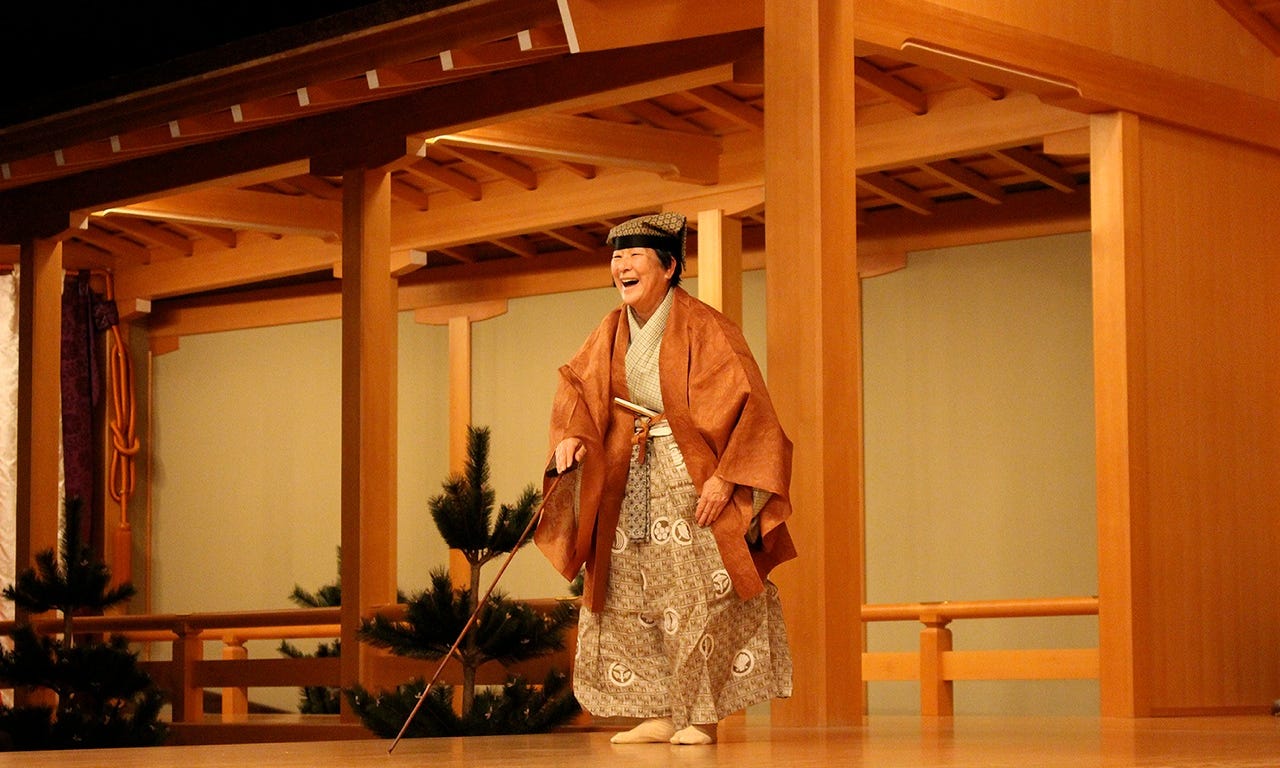
The Art of Restraint
In my debut, I played an owl-possessed younger brother in a Kyogen comedy classic called "Owl Mountain Priest". It’s a story about an older brother seeking the incantations of a mountain priest to help his sick brother recover from an owl spirit’s possession. To me, my role’s artistic essence consists in the restraint it exercises - a Nohgaku ideal that fills in the counterpoint for me in a city where over-expression and excess is the celebrated.
To me, my role’s artistic essence consists in the restraint it exercises - a Nohgaku ideal that fills in the counterpoint for me in a city where over-expression and excess is celebrated.
Each step, each gesture on stage, was a measured exercise in understated intensity and elegance, expressed through the subtle ways in which I shifted and grounded my body. As the possessed brother, I was in a position to define and move reality with my body, instead of having it move me. The role demanded a presence that was felt rather than seen, a power conveyed in the spaces between actions, in what is left unsaid and undone.
An Owl’s Gaze
Becoming an owl meant more than donning elaborate kimonos of long sleeves like wingspans and dragging pants; it was a journey into a more primal, unencumbered existence.
On the surface, this transformation seemed straightforward—minimal acting, no overt expressions. Believe it or not, my only spoken lines were hooting at various pitches. Yet, in its simplicity lay what I found the most illuminating - a shedding of the self. I learned to embody the owl's still gaze, maintaining the bird’s intense, almost piercing energy in my body, while stripping away the human layers of desire and fear in my face.
My rhythmic spiral around the priest in the jo-ha-kyu pattern was not just performance but an unshackling from the need to derive and impart meaning, the analytical baggage that weighs in on one’s choices. It was a unique form of catharsis, distinct from the dramatic pathos of tragedy, rooted instead in a clear and pure form of existence.
Absurdity as a Closure
The climax of our play, far from the usual heroic resolution, was an absurd dance, a “Hootstorm” accompanied by repetitive stomping and spiraling, as the older brother and the mountain priest, one after another, succumbed to the force of the owl spirit my role was possessed by. There was no sentimentality, commentary or character introspection made in this conclusion. Instead, it was a simple presentation of how events escalated in a farcically matter-of-fact way.
The narrative’s deviation from the traditional hero’s journey found classic western scripts—renunciation of a neat resolution and contemplation—offered me a sense of closure that was unexpectedly reassuring. Performing on stage, I experienced a dual revival: I was both resurrecting an ancient eastern comedic tradition and making a parody of the contradictions of my own life recognized and left as they simply are—sometimes unresolved, often cyclical, always in motion.
Not all battles end in victory or defeat; some just dissolve into the rhythm of life.
Finding My Yugen
To me, “Yugen” is not only a theater name, but also a Japanese aesthetic and philosophical idea that has long whispered to the quieter corners of my soul.
“Yu” speaks of a kind of otherworldly depth; “Gen”, on the other hand, suggests a subtle and profound sense of darkness. Together they portray an elusive, almost ineffable spirituality.
I recall, on a night many years ago in Kyoto, encountering a door curtain. It bore the kanji for "Yugen", 幽玄, its fabric caught in a midnight breeze. In that moment, enveloped in the curtain's ethereal flutter, I felt the essence of Yugen around me.
Now, in the heart of San Francisco, a city ever in the throes of creating and recreating its grand tales, finding my Yugen, 幽玄, has become a personal quest. It's about clinging to a narrative that's uniquely mine. It's about believing that while moving in step with the accelerating pulse, I also hold a space within me for the stillness of an owl’s gaze, even if just for the length of an absurd dance.

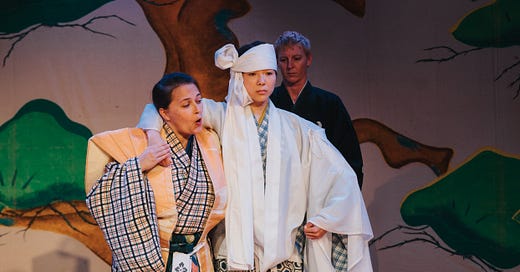


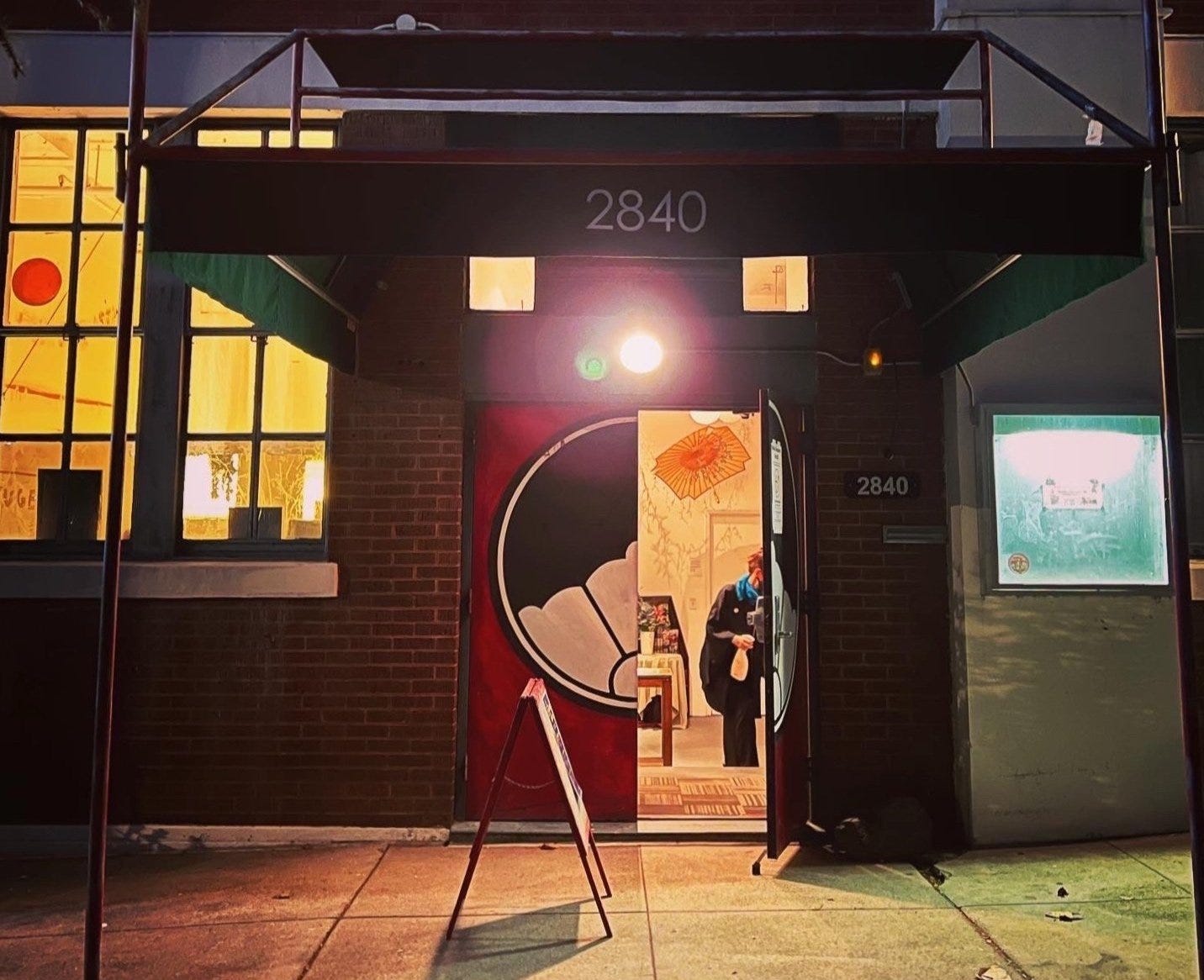
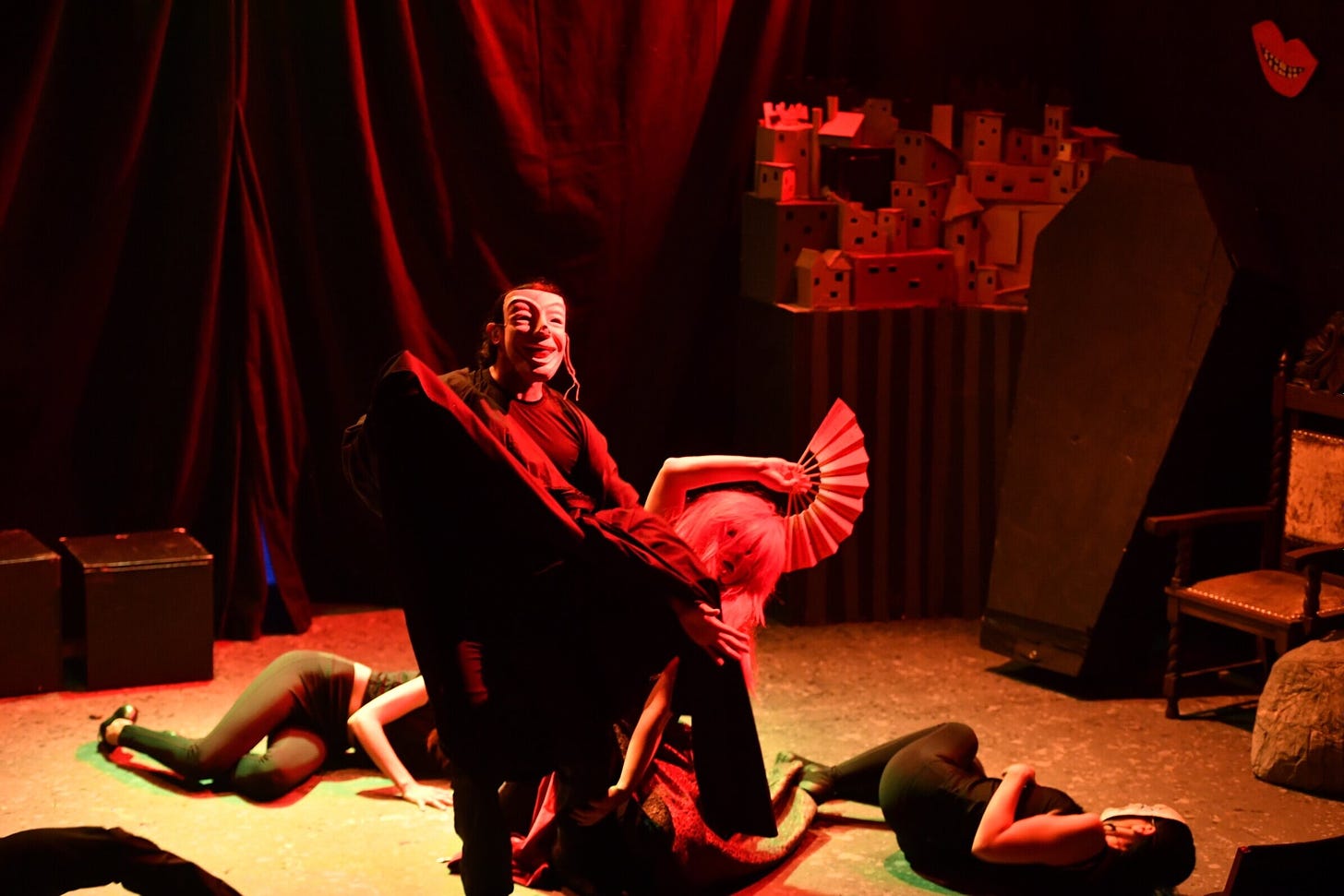
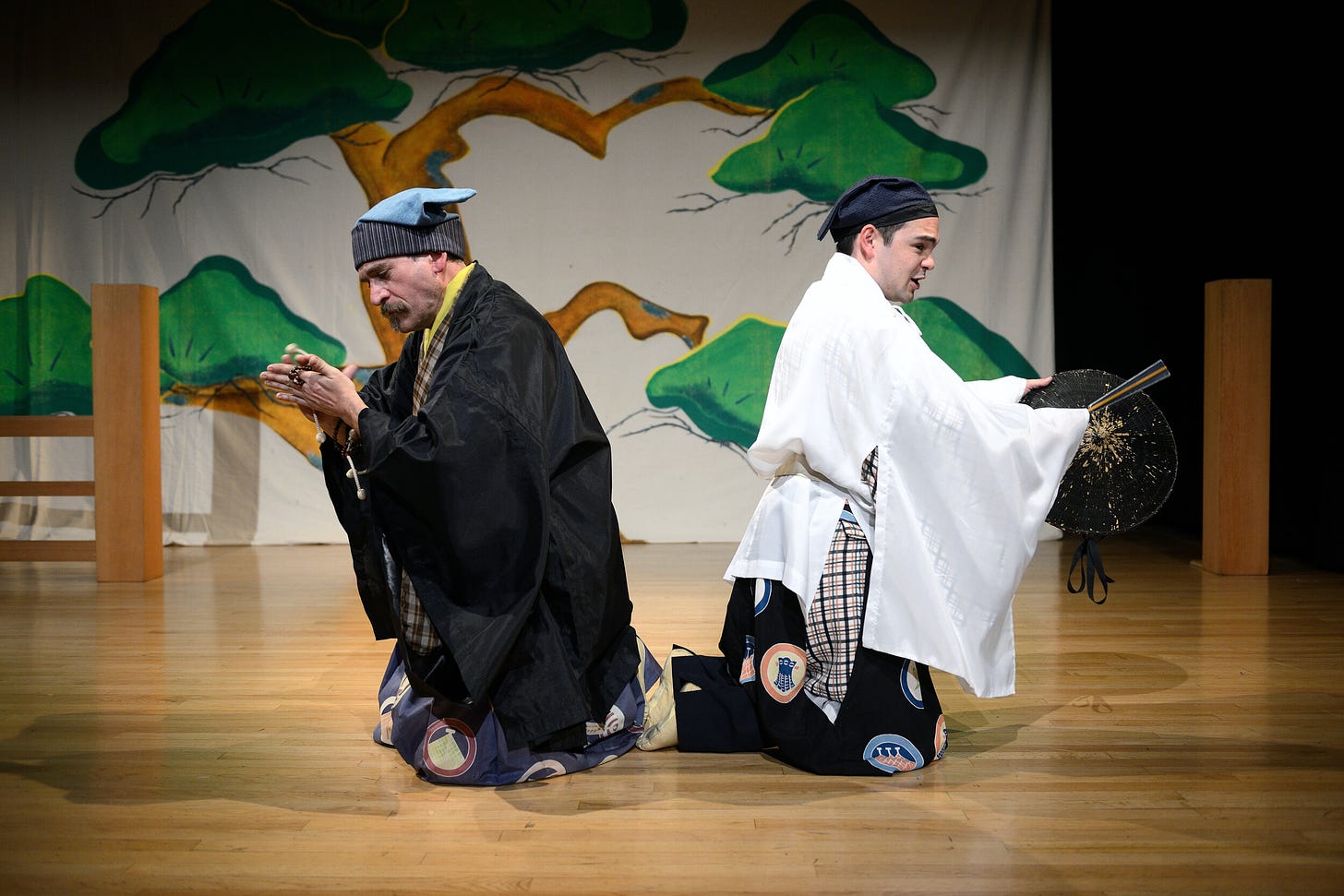

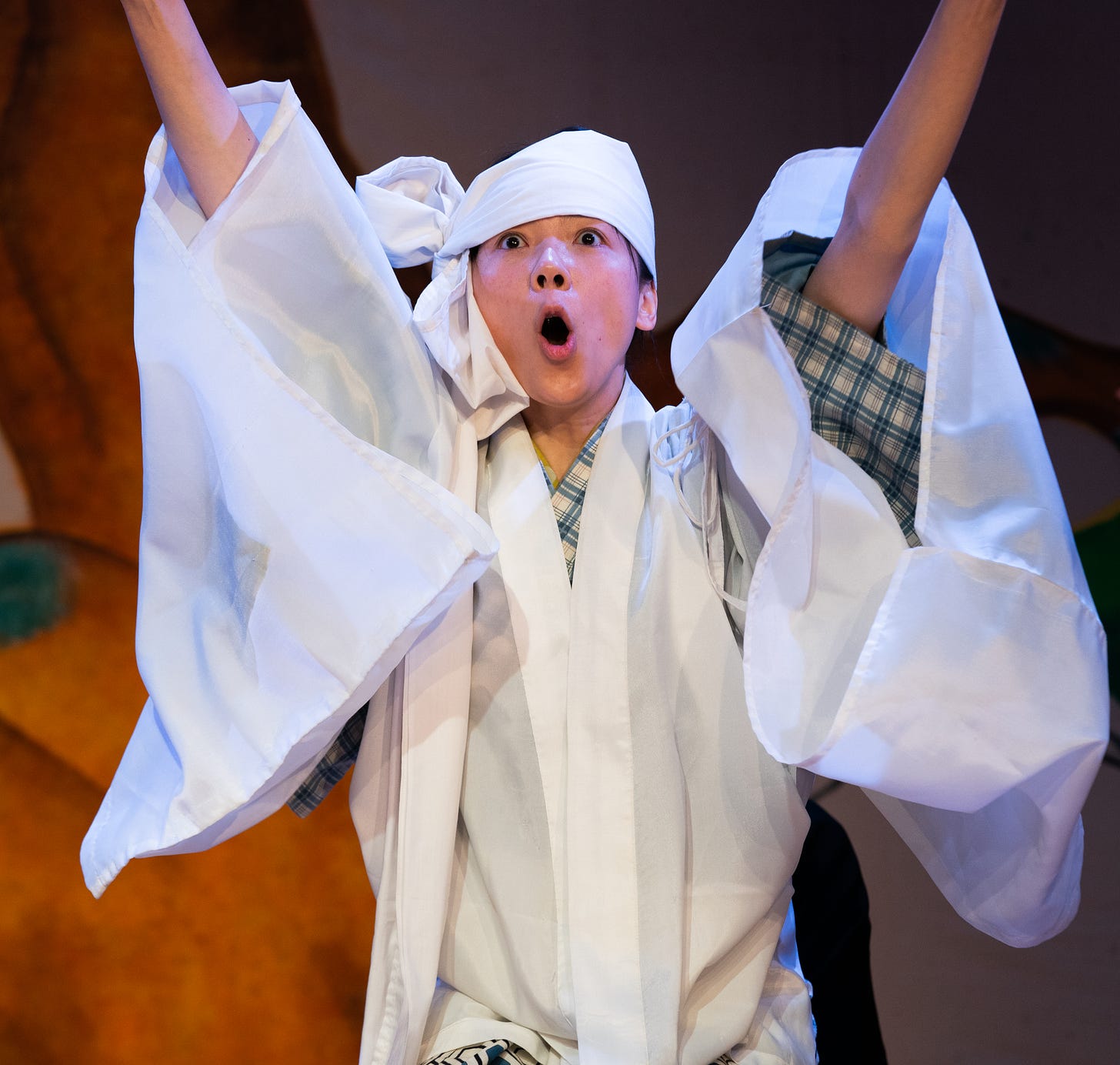






I'm happy to see and somewhat amazed they still exist in SF, given the economics of everything! I went there about 15 years ago with a friend for a performance. If I remember, we were one of the only young people there, they had some free sushi afterwards, and overall it was one of those old-school memorable quirky SF things that even then, felt like it was amazing that it still existed..special things. Also the gamelans of the Bay Area area are something that survives through the dedication of its members.
woahhh!! Goosebumps reading this. This is inspiring, honest and beautifully written. I am so lucky to have known you!